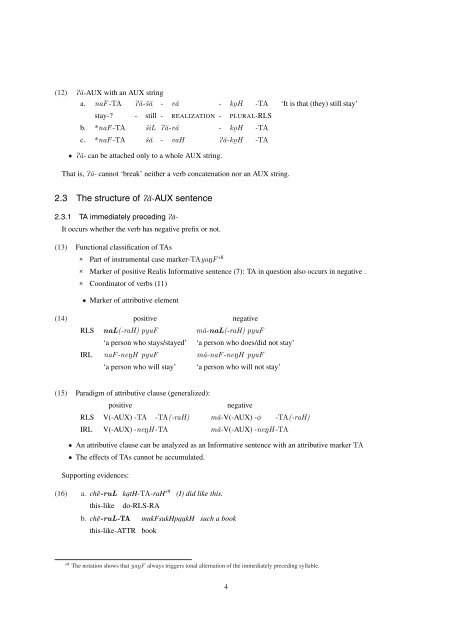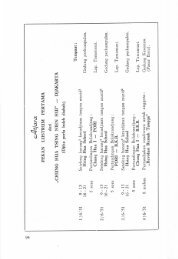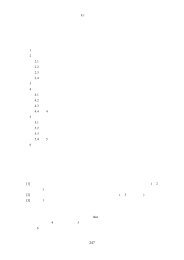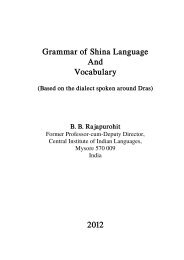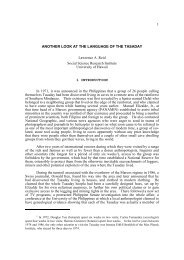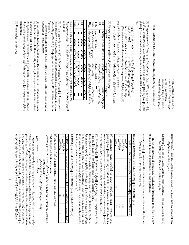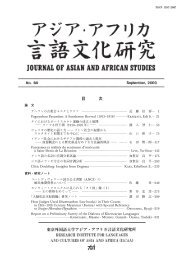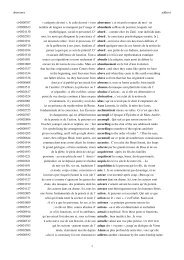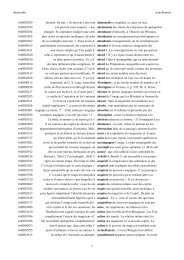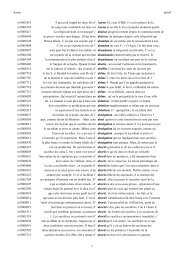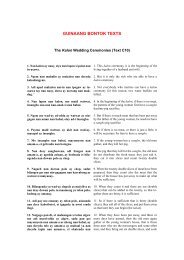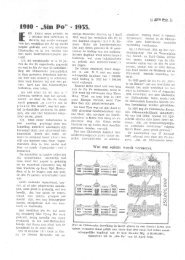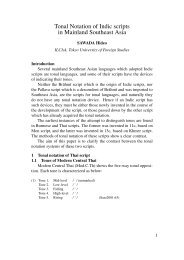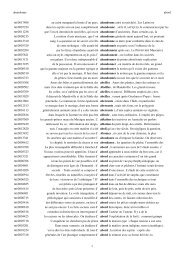PËa-prefixation on verbs and auxiliaries in Lhaovo (Maru) Language ...
PËa-prefixation on verbs and auxiliaries in Lhaovo (Maru) Language ...
PËa-prefixation on verbs and auxiliaries in Lhaovo (Maru) Language ...
Create successful ePaper yourself
Turn your PDF publications into a flip-book with our unique Google optimized e-Paper software.
(12) Pă-AUX with an AUX str<strong>in</strong>g<br />
a. naF -TA Pă-šă - vă - kōH -TA ‘It is that (they) still stay’<br />
stay- - still - REALIZATION - PLURAL-RLS<br />
b. *naF -TA šiL Pă-vă - kōH -TA<br />
c. *naF -TA šă - vaH Pă-kōH -TA<br />
• Pă- can be attached <strong>on</strong>ly to a whole AUX str<strong>in</strong>g.<br />
That is, Pă- cannot ‘break’ neither a verb c<strong>on</strong>catenati<strong>on</strong> nor an AUX str<strong>in</strong>g.<br />
2.3 The structure of Pă-AUX sentence<br />
2.3.1 TA immediately preced<strong>in</strong>g Pă-<br />
It occurs whether the verb has negative prefix or not.<br />
(13) Functi<strong>on</strong>al classificati<strong>on</strong> of TAs<br />
Part of <strong>in</strong>strumental case marker-TAyaNF * 8<br />
Marker of positive Realis Informative sentence (7): TA <strong>in</strong> questi<strong>on</strong> also occurs <strong>in</strong> negative .<br />
Coord<strong>in</strong>ator of <strong>verbs</strong> (11)<br />
• Marker of attributive element<br />
(14) positive negative<br />
RLS naL(-raH) pyuF mă-naL(-raH) pyuF<br />
‘a pers<strong>on</strong> who stays/stayed’ ‘a pers<strong>on</strong> who does/did not stay’<br />
IRL naF -neNH pyuF mă-naF -neNH pyuF<br />
‘a pers<strong>on</strong> who will stay’ ‘a pers<strong>on</strong> who will not stay’<br />
(15) Paradigm of attributive clause (generalized):<br />
positive<br />
negative<br />
RLS V(-AUX) -TA -TA(-raH) mă-V(-AUX) -φ -TA(-raH)<br />
IRL V(-AUX) -neNH -TA mă-V(-AUX) -neNH -TA<br />
• An attributive clause can be analyzed as an Informative sentence with an attributive marker TA<br />
• The effects of TAs cannot be accumulated.<br />
Support<strong>in</strong>g evidences:<br />
(16) a. chĕ-ruL kātH-TA-raH * 9<br />
(I) did like this.<br />
this-like do-RLS-RA<br />
b. chĕ-ruL-TA<br />
this-like-ATTR<br />
mukFsukHpāūkH<br />
book<br />
such a book<br />
*8 The notati<strong>on</strong> shows that yaNF always triggers t<strong>on</strong>al alternati<strong>on</strong> of the immediately preced<strong>in</strong>g syllable.<br />
4


